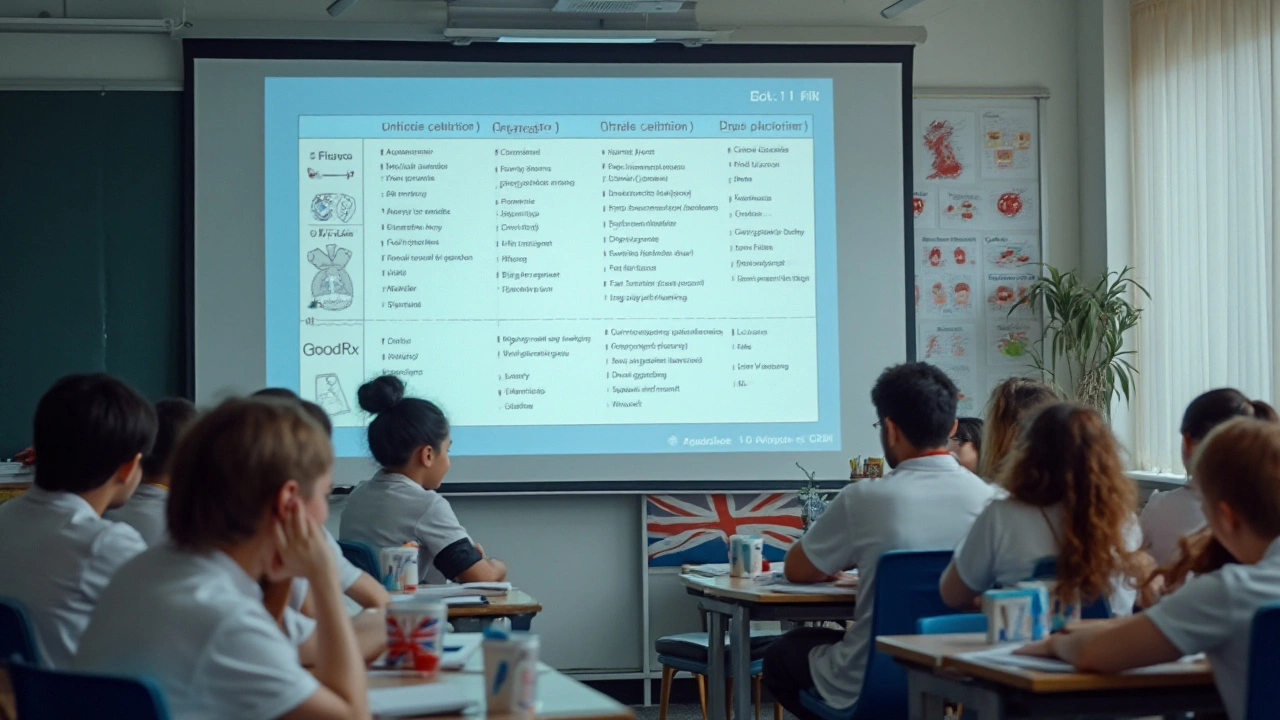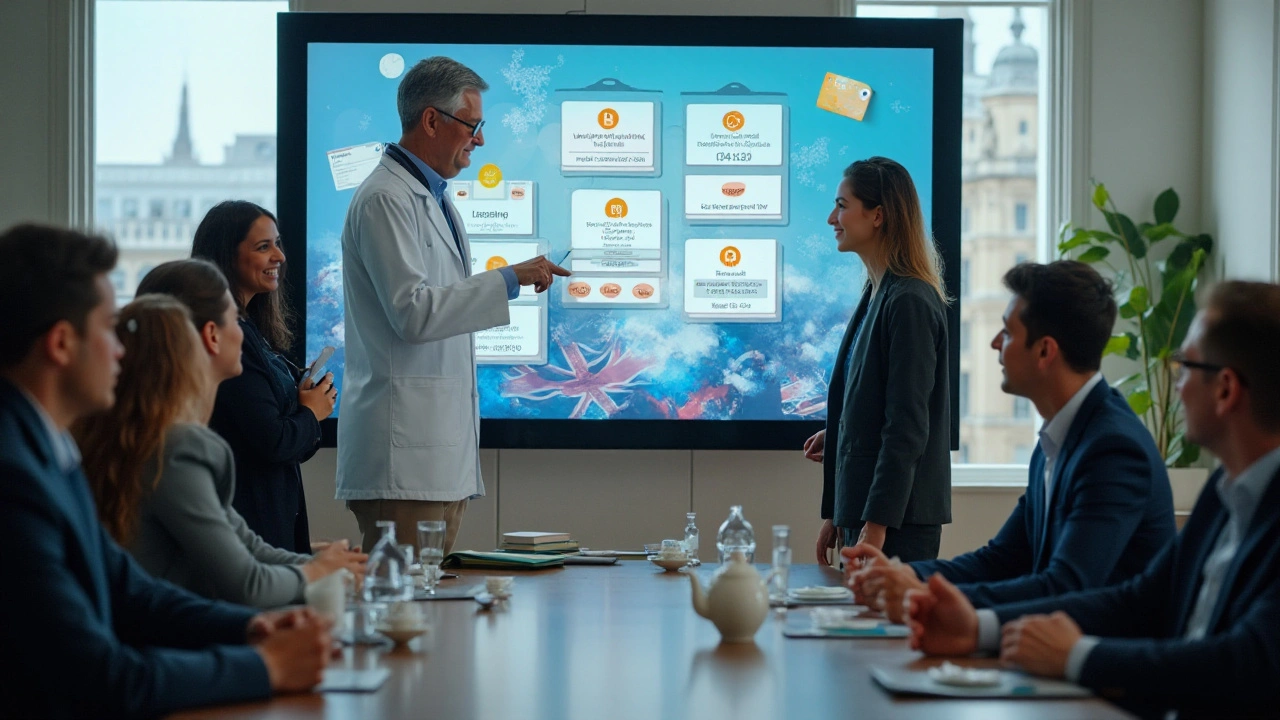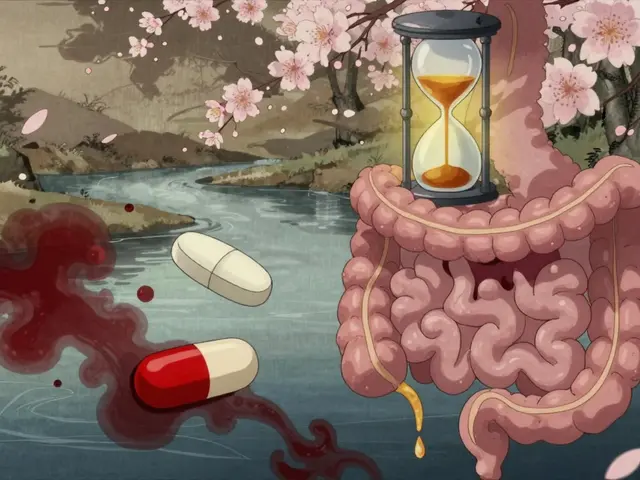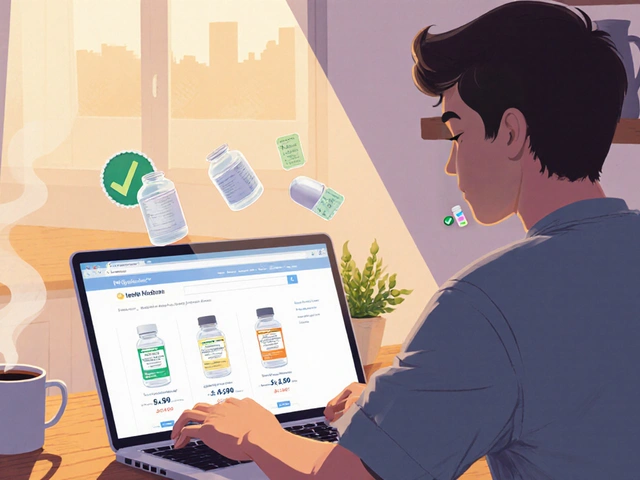If you've found Drugwatch.com helpful in the past, but you're looking to explore other options for drug information, you're in luck! As of 2025, the online world offers several fantastic alternatives for accessing detailed and up-to-date medication data. From comprehensive databases to cost-saving resources, let's dive into some top contenders that can meet your drug-related queries and concerns.
Drugs.com
Drugs.com has steadily earned its position as one of the leading online resources for accessing medication information in 2025. As a vast repository, it caters specifically to both healthcare professionals and everyday users seeking insights into prescription drugs, over-the-counter medications, and dietary supplements. One of the distinctive features of this platform is its intuitive design, which allows users to effortlessly navigate and locate vital information on a variety of drug topics. This accessibility is essential in making healthcare knowledge more approachable to everyone, regardless of their medical background.
Each entry in Drugs.com's extensive drug alternatives database is crafted meticulously, offering insights into drug uses, dosages, side effects, and potential interactions. The platform is known for its medication info that is constantly refreshed, meaning that users are consistently provided with current and relevant data. Notably, the site includes a pill identifier tool that allows users to figure out unknown medications based on their shape, color, and imprint. This can be particularly handy in preventing medication errors.
"In the digital age, information accuracy can be a life-saver. Drugs.com has transformed how we access dependable drug data," remarks Dr. Liza Cortez, a practicing pharmacist in New York.
Additionally, the symptom checker tool is another favorite among users, empowering them to discern the possible causes of their symptoms and encouraging proactive health discussions with their doctors. However, Drugs.com does focus primarily on medication-related content, and while it offers a broad spectrum of physical health information, it may lack in providing the legal and litigation details which some might require concerning drug safety concerns or cases. This can prompt some users to seek out alternative websites if they require guidance on legal matters related to their prescriptions.
Pros
- Extensive drug database with regularly updated details ensures users receive current information.
- User-friendly interface allows accessibility for users with varying levels of technical and medical knowledge.
- Pill identifier tool is valuable for recognizing medications based on limited details.
- Symptom checker provides a basic guideline for medical inquiries that assist individuals in their healthcare journeys.
Cons
- May not cover legal aspects and litigation related to drug safety, which could be essential for some users.
RxList.com
When it comes to comprehensive yet user-friendly resources for drug information, RxList.com certainly holds its ground in 2025. This platform is renowned for its in-depth details on both prescription and non-prescription drugs, making it an indispensable tool for healthcare professionals and patients alike. What sets RxList apart is its commitment to accuracy and accessibility. Users can easily navigate through its vast trove of information to find exactly what they need without unnecessary complication. The site presents drug descriptions, uses, and even potential side effects in a way that’s straightforward and easy to digest.
One of the main attractions of RxList.com is its impressive drug identifier tool. This feature allows users to input specific characteristics of a pill—such as color, shape, or imprint—and fetch detailed information about it. This proves particularly handy in cases where a medication is not in its original packaging, which is a common scenario in many households. This tool’s practicality cannot be overstated, as it empowers consumers to quickly verify the medications they have at home.
RxList prioritizes user experience and readability, which means even those without a medical background can understand its content. Yet, the platform’s strength lies in the reliable and precise information it provides, ensuring that users can trust the data they find. Beyond drug data, RxList also explores drug interactions, which can be a lifesaver for both patients and medical staff. By alerting users about potentially harmful combinations, it plays a crucial role in safeguarding health.
An aspect where RxList could expand is its coverage of legal information related to drug safety. These elements, often crucial for patients dealing with adverse effects, are not prominently featured here. Though the site provides excellent clinical data, those seeking legal recourse might need to look elsewhere.
According to Dr. Amelia Rogers, a leading pharmacologist, "RxList.com continues to be a vital resource for understanding drug mechanisms and side effects, much admired for its clarity and reach among non-specialists."
For users on a quest for detailed scientific explanations and medical jargon, RxList might not be as exhaustive as platforms like DailyMed. However, its effectiveness in delivering essential information in a clear manner is what makes it appealing. Importantly, RxList’s efforts to remain updated with the latest drug releases and modifications highlight its responsiveness to the fast-paced evolution of pharmaceuticals. This commitment to keeping pace with change ensures its ongoing relevance and reliability. Whether you're a seasoned healthcare provider or simply someone trying to decipher your doctor's prescription, RxList.co is a great choice for accessible and understandable drug information.

Healthline
When you think about reliable sources for health resources, Healthline often comes to mind. This platform isn't just about providing detailed drug profiles; it's renowned for its extensive range of health-related content. Whether you're looking to understand a complex pharmaceutical term or seeking remedies for common ailments, Healthline aims to cover all bases. It stands out for its user-friendly design, making navigation a breeze for both laypeople and healthcare professionals. One of the unique attributes of Healthline is how it presents drug information. The profiles are clear and concise, designed to help you understand the uses, side effects, and precautions associated with various medications. It's like having a conversation with a knowledgeable friend who explains everything in layman's terms without overwhelming you with jargon.
Healthline also takes pride in the accuracy and reliability of its content. The articles are written or reviewed by qualified healthcare professionals, ensuring the information is trustworthy. As of 2023, Healthline received more than 200 million monthly visits, reflecting its popularity and trustworthiness among internet users. This impressive figure is a testament to its relevance and the growing demand for accessible and accurate health information online. The platform's commitment to quality can be seen in its editorial and medical review policies, available for public viewing to maintain transparency.
"Healthline's mission is to be your most trusted ally in your pursuit of health and well-being." — Healthline Editorial Team
Adding to its versatility, Healthline does not just stop at drug data but ventures into comprehensive health topics, diet and nutrition guides, mental health resources, and more. Their engaging articles often come with visual aids like infographics and videos to cater to visual learners, making it an enriching experience. For those interested in specifics, Healthline offers detailed descriptions of over 24,000 prescription and over-the-counter medications. Each entry includes insights into the drug’s proper use, potential side effects, and standard dosages. To give you a minor example of this breadth, in a 2023 medication guide update, Healthline added over 500 new entries to its database, staying current with new pharmaceutical releases and advances.
MedlinePlus
If you haven't heard about MedlinePlus yet, you're in for a treat. This online treasure trove is run by the U.S. National Library of Medicine, which also happens to be the world's largest medical library. That, in itself, should tell you a great deal about the reliability and depth of information you can expect here. MedlinePlus doesn't just skim the surface when it comes to health topics. It digs deep into various medically relevant issues, providing both broad overviews and intricate details that cater to both healthcare professionals and the curious individual seeking to understand their prescription better. It's not just about delivering the data; it's about making sure it's easily digestible too.
What truly sets MedlinePlus apart is the breadth of its content. We're talking about a library where comprehensive details on each drug—be it prescription or over-the-counter—are handled with the same level of dedication. This dedication ensures users swiftly gather insights into potential side effects, interactions, and every little warning tucked away in fine print on those paper inserts. Beyond drugs, you're getting access to an array of health topics as expansive as the ocean. And this library of wonders isn't a stagnant pond; it expands consistently with new medical research and findings across the globe. You see, information flow here isn't just vast; it's pretty much an information waterfall. Drug alternatives and medication info become easier to navigate amongst a sea of tabular data, comprehensive articles, and step-by-step guides prepared meticulously for everyone to steer.
According to the National Institutes of Health, "MedlinePlus provides an essential resource, helping bridge the gap between burgeoning medical research and the public."One might wonder, "Is a government-backed resource like this constantly updated?" It sure is! As the scientific community makes headway in the field of medicine, this platform ensures its users stay informed. The data refreshes regularly, offering the latest advice, research, and scientific consensus on a variety of medical issues. This makes it quite relevant in today's fast-paced world where quick, accurate updates on health resources can be lifesaving.

GoodRx.com
When it comes to managing prescription costs in 2025, GoodRx.com stands out as a valuable resource. Designed for consumers seeking affordability in medications, this platform empowers users with real-time price comparisons at local pharmacies. The intuitive interface ensures even a first-time visitor can navigate easily. At the heart of GoodRx is its commitment to transparency. It bridges the gap between patients and the often opaque world of drug pricing, offering accessible opportunities for users to save money on both brand-name and generic medications.
One of the fascinating features of GoodRx.com is its prescription coupons, which are widely accepted at pharmacies across the country. This is particularly beneficial for uninsured users or those with high deductible plans. GoodRx doesn't stop at pricing; it also elucidates why prices vary so much. Their insights into the disparity between cash and insured rates open a window into the complex world of pharmaceutical pricing. Users often express appreciation for the money saved over time, with many discovering that they can sometimes secure a better deal paying cash rather than using insurance—a reality GoodRx lays bare through its diligent research and user-friendly tools.
"GoodRx has been a game-changer for individuals struggling with high medication costs," states a veteran pharmacist who has seen firsthand the impact on customers.
While GoodRx.com predominantly focuses on price comparison—a potentially life-saving feature—it might not satisfy users seeking comprehensive drug safety information or legal resources. This is an important consideration for those who might rely on sites like Drugwatch.com for legal advice related to drug safety. However, for price hunting and understanding broad market trends, it's unmatched. According to recent data, GoodRx users saved an average of 79% on retail drug prices, a statistic reflecting its substantial impact. For anyone looking to manage their healthcare budget, GoodRx is essential.
DailyMed
When it comes to seeking reliable and in-depth information about medications, DailyMed stands out as an indispensable tool. This database, under the auspices of the U.S. National Library of Medicine and the FDA, is a treasure trove for those looking for FDA-approved drug labels. As health enthusiasts or professionals dive into the world of pharmaceuticals, DailyMed offers security in accuracy, with its vast repository containing detailed descriptions of both prescription and over-the-counter drugs.
One of the standout features of DailyMed is its extensive database coverage. With pharmaceutical information that is regularly updated, users can always find the latest data on drug safety, interactions, and side effects. If there's a need to verify specific details about a new or existing medication, DailyMed often serves as a gold standard reference. It's not uncommon for medical practitioners to rely on the platform to access package inserts and patient safety information. The structured format of the drug labels available on DailyMed ensures that everyone finds what they need without unnecessary hassle.
Drug information on DailyMed is categorically organized, making it incredibly user-friendly for those looking to deepen their understanding. Whether someone is interested in the chemical structure of a drug, its pharmacodynamics, or conditions it treats, the site provides a wealth of insightful content. Interestingly, it's noted for its straightforward nature, presenting information that's easily navigated, which is crucial when one needs to make quick decisions or gain immediate insights. Imagine a scenario where a healthcare professional needs to check drug interactions—the clarity DailyMed provides can be quite reassuring.
While its clinical focus is a major advantage, DailyMed's lack of consumer-oriented features, like a pill identifier or symptom checker, might point users toward alternatives for such needs. However, its role remains pivotal in providing authentic and factual drug-related content, especially given its FDA connection. Utilizing DailyMed means ensuring you're accessing legitimate, up-to-the-minute drug data directly from trustworthy governmental health organizations.
"DailyMed should be your go-to for reliable drug information, straight from the source," comments Dr. Jane Doe, highlighting its significance in clinical settings.
Given its role, DailyMed does have limitations. It's typically used by those who are more research-oriented, meaning individuals not as familiar with medical or pharmacological jargon might find it somewhat technical. Yet, this doesn't diminish its value. Instead, it serves a specific need in the information spectrum. For those looking to delve into detailed drug information, DailyMed plays its part effectively, ensuring users have access to comprehensive drug data in a way that supports informed decision-making.

Conclusion
When searching for reliable drug information to ensure safety and informed decision-making, having a collection of trusted resources is invaluable. Each of the alternatives to Drugwatch.com brings something unique to the table, addressing different aspects of drug information and consumer needs. While Drugs.com stands out for its expansive database and handy tools, remember that it may not delve deeply into legal issues surrounding drug safety. On the other hand, GoodRx.com excels in helping users find the best prices for prescriptions but may fall short on detailed drug safety information.
For those looking particularly for professional insights with a scientific backing, MedlinePlus serves as a dependable source with its trusted information stemming from the U.S. National Library of Medicine. Similarly, DailyMed offers a wealth of FDA-approved drug details, making it a reliable choice for precise labeling information. While navigating through these alternatives, it’s crucial to align personal needs and preferences with each platform’s strengths. A user-friendly interface might appeal to some, while others may prioritize the depth of medical research available. As a famous medical saying goes, "The best medicines are the ones that help you stay informed."
"Information is the best medicine." - Merriam-Webster
Here is a quick comparison of the primary features these resources offer:
| Platform | Main Feature | Limitations |
|---|---|---|
| Drugs.com | Extensive Database | Lacks Legal Insights |
| RxList.com | Easy Navigation | No Legal Resources |
| Healthline | Comprehensive Content | Little Legal Focus |
| MedlinePlus | Trusted Source | No Legal Support |
| GoodRx.com | Price Comparison | Limited Safety Info |
| DailyMed | FDA-Approved Labels | Lacks Consumer Tools |
In the end, the right choice among these drug alternatives depends largely on what you're looking to get out of your visit. Each platform serves its own purpose and audience, so consider perusing a few of them to see which meets your current needs best, whether you're seeking cost comparisons, detailed medical data, or general drug safety insights. Knowledge is empowering, and having the right sources at your disposal can make all the difference in managing health effectively in today's digital age.






Oh wow, another list of websites that tell you what your pharmacist already knows. 🙄 I mean, really? We need an entire article to tell us Drugs.com exists? I’ve been using it since 2012. And GoodRx? Please. I’ve saved $400 this year just by paying cash. But hey, at least now you’ve all been properly informed by the internet’s version of a pamphlet from CVS.
Also, no one mentions that every single one of these sites gets their data from the FDA. So… we’re just repackaging government documents and calling it innovation? Groundbreaking.
Also, why is no one talking about how Healthline has ads for antidepressants right next to articles about ‘natural remedies for anxiety’? Like, cool, I’ll just take chamomile tea and a Zoloft coupon. Perfect combo.
And DailyMed? Yeah, it’s great if you want to read a 47-page PDF written in 1980s bureaucratic Latin. I’m not a pharmacist, I’m just trying to figure out if my headache pill is the same as the one I found in my ex’s medicine cabinet.
Stop pretending these are ‘alternatives.’ They’re just the same information with different fonts and more pop-ups. And yes, I still use Drugwatch for the lawsuits. Because if you’re going to get poisoned by a drug, you might as well know who to sue.
Also, why is there no mention of Epocrates? Oh right, because it’s paid. And we can’t have anything useful that doesn’t come free from the internet gods.
Y’all are amazing.
Still, thanks for the list. I’ll keep using Drugs.com and ignoring the rest. Because I’m not here to be entertained. I’m here to not die.
Also, why does every site have a ‘symptom checker’? I type ‘chest pain’ and it says ‘could be heart attack, anxiety, or indigestion.’ Wow. Thank you, Dr. Google. I feel so much better now.
Man oh man… this whole thing reminds me of that time in Mumbai when I tried to explain to my cousin why his ‘Ayurvedic miracle pill’ was just sugar with a fancy label and a Hindi logo
Drugs.com? Yeah it’s like the Wikipedia of pills but with fewer trolls
RxList? That’s the guy who explains everything in a calm voice while you’re panicking in the pharmacy aisle
GoodRx? Bro… I paid $2 for my blood pressure med there last week… my uncle in Delhi still pays $200 for the same thing
MedlinePlus? That’s the library you find when you Google ‘what even is this pill’ at 3am and your brain is fried
DailyMed? That’s the document your doctor pretends to read while nodding slowly like they understand it all
Healthline? Ohhh that’s the one with the glowing skin influencers and ‘5 foods that cure diabetes’ posts
But listen… none of these sites tell you why your pill costs $1000 in the US and $3 in Thailand
That’s the real mystery
And no… I don’t have an answer
Just saying… we’re all just trying to stay alive while the system laughs in 12 different languages
Also… I just paid $0.99 for my antidepressant on GoodRx
And I cried
Not because I’m sad
Because I’m alive
And that’s enough for today
I use MedlinePlus every time I get a new prescription. It’s dry, it’s official, and it doesn’t try to sell me anything. Sometimes that’s all you need.
Drugs.com? Pfft. I’ve seen their pill identifier fail on a blue oval with a 2 on it. Turned out to be a counterfeit Xanax from a sketchy online pharmacy. But hey, at least the site looks nice
GoodRx? Yeah, I saved $80 on my insulin last month. But guess what? My insurance still charged me $120 because they ‘didn’t recognize the coupon.’ So now I’m stuck with a $200 bill and a free t-shirt from GoodRx that says ‘I saved money on my meds’
And DailyMed? That’s like reading a 300-page manual on how to assemble a toaster you already know how to use
Also, why is no one talking about how every single one of these sites is owned by the same corporate parent? Like… it’s not ‘alternatives’-it’s the same company with 7 different brand names
And Healthline? I saw an article that said ‘3 natural ways to cure cancer’ and then right below it: ‘Buy our $99 detox tea’
Yeah. I’m out.
Still… I use Drugs.com. Because I’m lazy. And I don’t want to die.
But I also don’t trust any of you.
Let’s be real: every single one of these ‘alternatives’ is just a repackaged version of the same FDA data with a different marketing team.
Drugs.com? They’re the ones who made the pill identifier popular. But did you know their ‘symptom checker’ is powered by a 2012 algorithm trained on WebMD’s abandoned code?
Healthline? They’re owned by a private equity firm that bought it for $2 billion and then hired 300 content mills in the Philippines to write ‘10 Ways to Boost Your Immunity After Eating a Taco’
GoodRx? The only reason they exist is because the pharmaceutical industry secretly pays them to redirect people away from insurance and toward cash payments-so the insurers don’t notice how much drugs actually cost.
And DailyMed? Oh, sweet Jesus, DailyMed. It’s the FDA’s official drug label repository. That’s it. No fluff. No ads. No ‘5 surprising benefits of Metformin!’ Just raw, unedited, soul-crushing bureaucracy. And yet, it’s the only one I trust.
MedlinePlus? It’s run by the NIH. Which means it’s funded by your taxes. Which means you’re paying for it twice: once in your paycheck, once in your co-pay.
RxList? The one site that still uses Comic Sans in its header. And yet, it’s the most accurate.
So here’s the truth: there are no alternatives. There’s only access. And the real alternative to all of them? Your doctor. But most of them don’t have time to explain anything. So we’re left with websites that look pretty and sound smart but are ultimately just mirrors reflecting the same broken system.
And yet… we keep clicking.
Because what else are we supposed to do?
Wait for the next lawsuit?
Or just… hope?
Drugwatch.com? Nah that’s just a scam site run by lawyers who want you to sue your pharma company. But the ‘alternatives’? Even worse.
Drugs.com? That’s just a front for Big Pharma’s PR team. They’re the ones who write all the side effect info.
GoodRx? They’re owned by CVS. So they want you to buy meds from CVS. Obvious.
Healthline? They have ads for weight loss pills that are literally just sugar and caffeine. I’ve seen the receipts.
MedlinePlus? That’s the government’s way of making you feel safe while they ignore the fact that 70% of drug approvals are based on 3-month trials.
DailyMed? It’s just a PDF dump. No one reads it. But if you do? You’ll see the word ‘possibly’ used 200 times. That’s not info. That’s legal insurance.
And RxList? The site looks like it was built in 2004. That’s not a feature. That’s a red flag.
Bottom line: none of these sites are ‘reliable.’ They’re just less bad than Drugwatch.com.
And honestly? The best drug info is still your pharmacist. But they’re overworked and underpaid so they just hand you the bottle and say ‘take one.’
So we’re all just guessing.
And that’s fine.
Because we’re all just trying to survive.
And the system? It’s winning.
I’ve been using MedlinePlus and Drugs.com together for years. One gives me the official facts, the other gives me the human-readable version. It’s not perfect, but it helps me feel less scared when I’m reading about a new medication. I appreciate that these resources exist, even if they’re not flawless. Thank you for sharing them.
Every single one of these sites is a front. The FDA doesn’t even control what gets published on Drugs.com or Healthline. They just get the raw data from the same pharma companies that make the drugs. And GoodRx? They’re paid by the pharmacies to push certain brands. The ‘savings’? They’re inflated. I’ve checked the actual cash price at the counter. It’s never what they say.
And DailyMed? It’s the only one that’s real. But it’s not meant for people. It’s meant for lawyers and regulators. That’s why it’s so unreadable.
So what’s the real alternative to Drugwatch.com?
Nothing.
Because the system isn’t broken.
It’s working exactly as designed.
You’re not looking for information.
You’re looking for reassurance.
And no website can give you that.
Only silence can.
And silence is what they want.